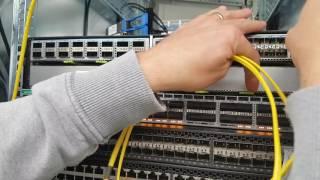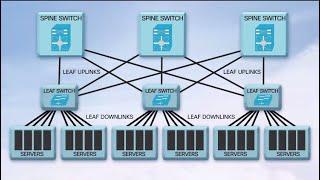Enroll in Economics of Cybersecurity from DelftX at https://www.edx.org/course/economics-cybersecurity-delftx-econsec101x
Economics of Cybersecurity
Learn how to measure the costs and assess the importance of securing your business from cyber threats.
About this Course
With a significant increase in high-profile data breaches and cybersecurity threats in the last couple years, it is critical for businesses to learn about the costs and investment decisions around securing their online systems. If you make decisions around IT investments in your job or are interested in learning more about securing your business, this course is for you.
While many businesses think of cybersecurity as a technical problem, this course broadens that view and shows that security failures are caused as often by bad business decisions and incentive systems as by bad technical design.
This course provides an introduction to the field of the economics behind cybersecurity, delivered by four leading research teams from distinguished universities around the world, including:
Michel van Eeten of Delft University of Technology in The Netherlands
Ross Anderson of Cambridge University in the United Kingdom
Rainer Boehme of University of Münster in Germany
Carlos H.Gañán of Delft University of Technology in The Netherlands
Tyler Moore of Southern Methodist University in the USA
It will provide you with the economic concepts, measurement approaches and data analytics to make better security decisions, while helping you to understand the forces that shape the security decisions of other businesses, products and services.
This course will:
Teach you to make choices on investing in your company’s cybersecurity. We discuss and apply different economic models that help determine the costs and benefits of security investments.
Arm you with research to make strategic business decisions. We review empirical research into security decisions and incentives of actors. We analyze data on firms in different markets, and apply economic concepts to explain the strategies of attackers.
Review policy and regulations. We discuss available economic tools to better align the incentives for cybersecurity, including better security metrics, cyber insurance/risk transfer, information sharing, and liability assignment.
This course offers a broad view of the field through lectures and exercises that can apply to both early career professionals as well as senior technical managers.
After finishing this course you will be able to apply economic analysis and data analytics. You will understand the role played by incentives on the adoption and effectiveness of security mechanisms, and on the design of technical, market-based, and regulatory solutions to different security threats.
After successfully completing this course, you will:
Position yourself as a vital subject matter expert regarding the economic drivers that influence cybersecurity and position your company to move forward and stay competitive.
Engage confidently with management on opportunities and cybersecurity challenges faced by your industry; analyze emerging security threats and how these threats can be mitigated by effectively addressing real economic problems.
Learn and assess the issues of investment in cybersecurity, making your company more productive, while saving time and money.
Upon successful completion of this course, learners will be awarded a DelftX Professional Education Certificate. The TU Delft Extension School offers Continuing Education Units for this course. Participants of EconSec101x who successfully complete the course requirements will earn a Certificate of Completion and are eligible to receive 2.0 Continuing Education Units (2.0 CEUs).
PDF of the Syllabus
Economics of Cybersecurity
Learn how to measure the costs and assess the importance of securing your business from cyber threats.
About this Course
With a significant increase in high-profile data breaches and cybersecurity threats in the last couple years, it is critical for businesses to learn about the costs and investment decisions around securing their online systems. If you make decisions around IT investments in your job or are interested in learning more about securing your business, this course is for you.
While many businesses think of cybersecurity as a technical problem, this course broadens that view and shows that security failures are caused as often by bad business decisions and incentive systems as by bad technical design.
This course provides an introduction to the field of the economics behind cybersecurity, delivered by four leading research teams from distinguished universities around the world, including:
Michel van Eeten of Delft University of Technology in The Netherlands
Ross Anderson of Cambridge University in the United Kingdom
Rainer Boehme of University of Münster in Germany
Carlos H.Gañán of Delft University of Technology in The Netherlands
Tyler Moore of Southern Methodist University in the USA
It will provide you with the economic concepts, measurement approaches and data analytics to make better security decisions, while helping you to understand the forces that shape the security decisions of other businesses, products and services.
This course will:
Teach you to make choices on investing in your company’s cybersecurity. We discuss and apply different economic models that help determine the costs and benefits of security investments.
Arm you with research to make strategic business decisions. We review empirical research into security decisions and incentives of actors. We analyze data on firms in different markets, and apply economic concepts to explain the strategies of attackers.
Review policy and regulations. We discuss available economic tools to better align the incentives for cybersecurity, including better security metrics, cyber insurance/risk transfer, information sharing, and liability assignment.
This course offers a broad view of the field through lectures and exercises that can apply to both early career professionals as well as senior technical managers.
After finishing this course you will be able to apply economic analysis and data analytics. You will understand the role played by incentives on the adoption and effectiveness of security mechanisms, and on the design of technical, market-based, and regulatory solutions to different security threats.
After successfully completing this course, you will:
Position yourself as a vital subject matter expert regarding the economic drivers that influence cybersecurity and position your company to move forward and stay competitive.
Engage confidently with management on opportunities and cybersecurity challenges faced by your industry; analyze emerging security threats and how these threats can be mitigated by effectively addressing real economic problems.
Learn and assess the issues of investment in cybersecurity, making your company more productive, while saving time and money.
Upon successful completion of this course, learners will be awarded a DelftX Professional Education Certificate. The TU Delft Extension School offers Continuing Education Units for this course. Participants of EconSec101x who successfully complete the course requirements will earn a Certificate of Completion and are eligible to receive 2.0 Continuing Education Units (2.0 CEUs).
PDF of the Syllabus
- Category
- Tech Education Channel
Be the first to comment















